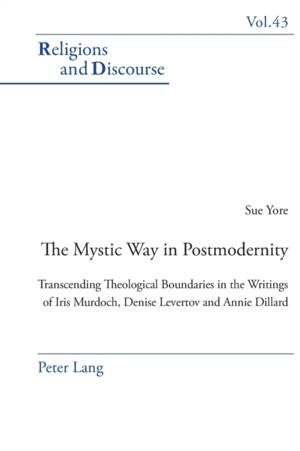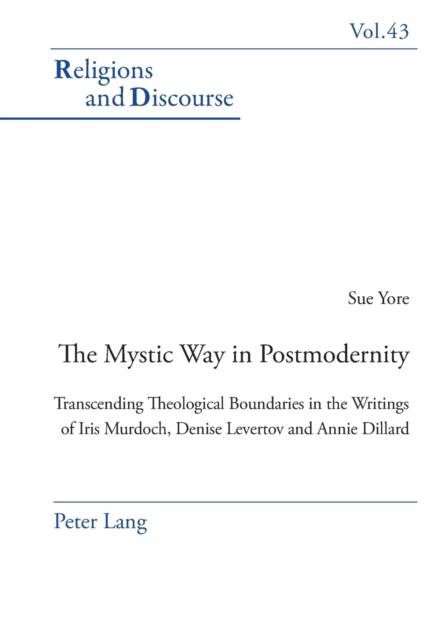
- Afhalen na 1 uur in een winkel met voorraad
- Gratis thuislevering in België vanaf € 30
- Ruim aanbod met 7 miljoen producten
- Afhalen na 1 uur in een winkel met voorraad
- Gratis thuislevering in België vanaf € 30
- Ruim aanbod met 7 miljoen producten
Zoeken
The Mystic Way in Postmodernity
Transcending Theological Boundaries in the Writings of Iris Murdoch, Denise Levertov and Annie Dillard
Sue Yore
€ 111,45
+ 222 punten
Omschrijving
This book challenges experiential, esoteric and colloquial understandings of mysticism by bringing a fresh relevance to the term through an interdisciplinary dialogue between literature, mysticism and theology in the context of postmodernity. In order to achieve this, the author takes selected writings of Iris Murdoch, Denise Levertov and Annie Dillard, and incorporates them into various stages of a redesigned mystic way. The fourteenth-century mystic Julian of Norwich is invoked throughout as a role model whom these three writers seek to emulate as popular writers, contemplatives and theologians. As theologians who are concerned with the pressing issues of our age, Grace Jantzen, Dorothee Soelle and Sallie McFague are drawn on as conversation partners to complete the three-way discussion. The author maintains that understanding the writing and reading of creative texts in the context of practical mysticism facilitates an integrated approach to the use of literature for theological expression.
Specificaties
Betrokkenen
- Auteur(s):
- Uitgeverij:
Inhoud
- Aantal bladzijden:
- 340
- Taal:
- Engels
- Reeks:
- Reeksnummer:
- nr. 43
Eigenschappen
- Productcode (EAN):
- 9783039115365
- Verschijningsdatum:
- 4/02/2009
- Uitvoering:
- Paperback
- Formaat:
- Trade paperback (VS)
- Afmetingen:
- 152 mm x 229 mm
- Gewicht:
- 458 g

Alleen bij Standaard Boekhandel
+ 222 punten op je klantenkaart van Standaard Boekhandel
Beoordelingen
We publiceren alleen reviews die voldoen aan de voorwaarden voor reviews. Bekijk onze voorwaarden voor reviews.








